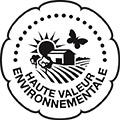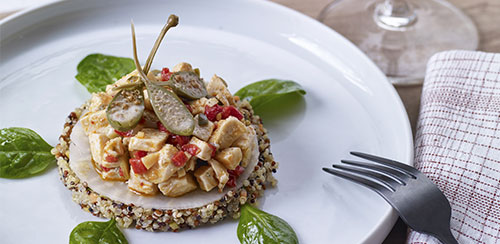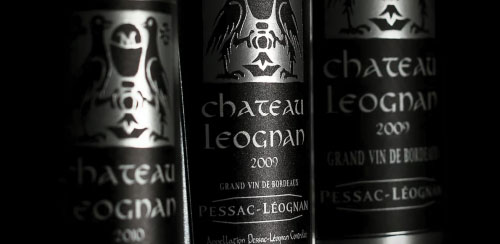Our environnemental practices
Discover our commitments to preserve our exceptional natural environment.
Our vineyard is part of an exceptional natural setting and we are committed to protecting it every day. We focus all our efforts on reducing the impact on the environment as much as possible. This attention to more natural practices allows us to guarantee the high quality of our wines in a sustainable manner so that future generations can also enjoy them. All of this translates into four main areas and an HVE level 3 label.

Soil treatments
Soil treatments are replaced by soil work.
The ploughshare is used to aerate and enrich the soil in a natural way. Ploughed soils encourage deep rooting, which protects the vines from drought.
In order to avoid compacting the light soils, this work is carried out by animal traction.
No insecticide
Insecticides are banned.
Thanks to the natural fauna present in the surrounding forest, there is a balance where “the biggest eats the smallest”: the ladybird eats the aphid, other insects eat the green leafhopper and our three bats colonies keep our vineyard free of cochylis and other nocturnal insects.
We also use female pheromones to eradicate grape worm and flavescence dorée by sexual confusion.
Finally, the growing number of our beehives reassures us that our environment is in a balanced state.
No chemical fertilizers
Fertilisers come from the vineyard: after pruning, the vine shoots are collected and crushed, then mixed with horse manure and placed in a decanting tray for 24 months.
After decomposition, this rich and natural fertiliser is reintroduced into the vineyard on the basis of 5 tonnes/hectare.
Phytosanitary treatments
Limiting phytosanitary treatments :
Through the production of proteodies, genodic effects significantly reduce wood diseases (esca, BDA, Eutypiosis).
The vine is directly impacted by its sound environment. We also broadcast protein melodies, called “proteodies”, in order to regulate the rate of specific protein synthesis at the cellular level, which slows down the growth of fungus and reinforces the vine’s natural defence process.
“Our vineyard gives us excellence each year. We have to give it special respect and attention in order to sustain this nature’s miracle”
– Philippe Miecaze


